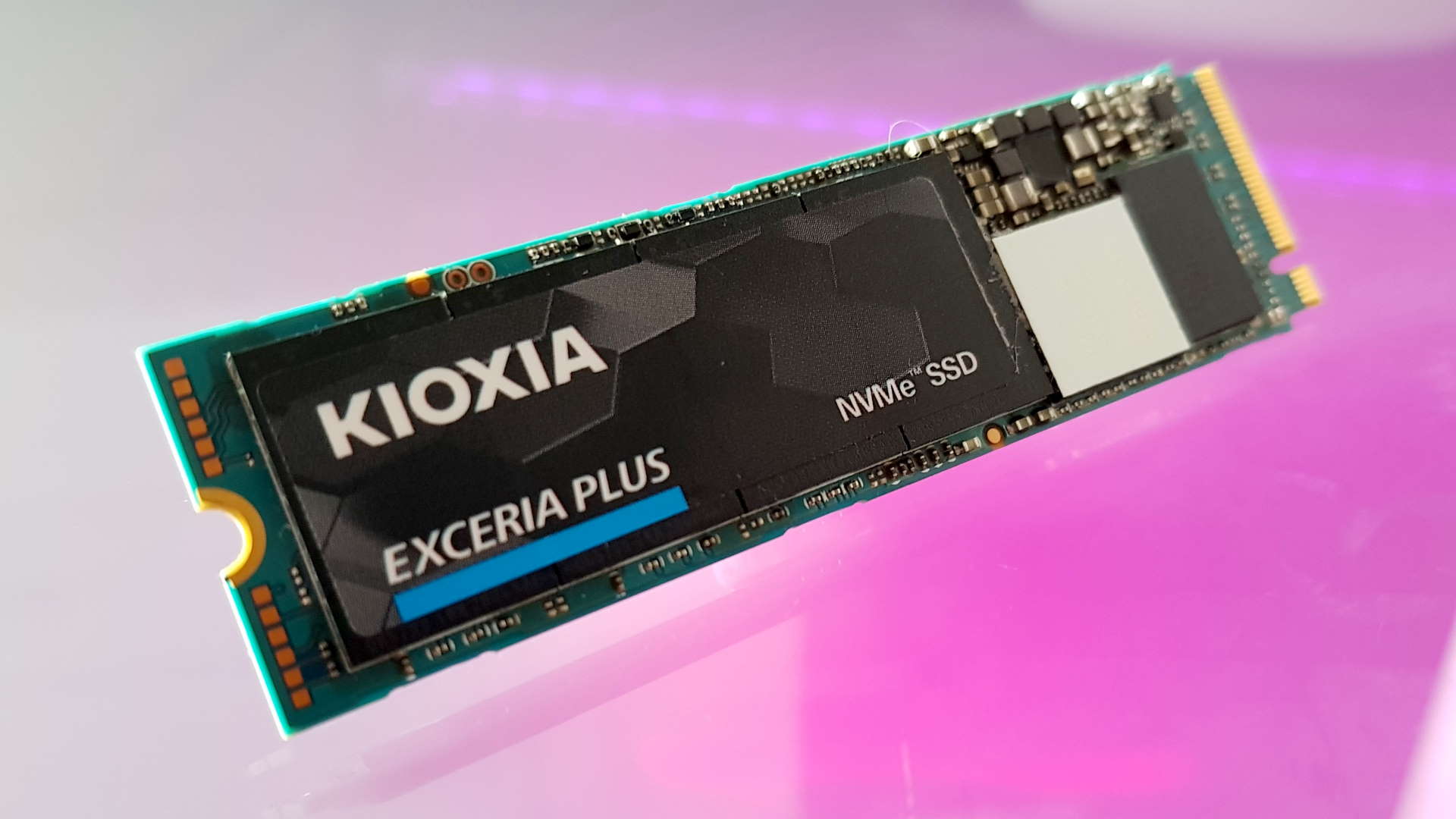Our Verdict
We've reached a point where the best PCIe 3.0 SSDs are performing around the same level, so now it's all come down to their individual value propositions. The Kioxia drives have put value central to their make-up, and it shows.
For
- Top line Gen3 performance
- Decent value
- High capacity
Against
- Low real-world transfer times
- Will always lag PCIe 4.0 SSDs
PC Gamer's got your back
Toshiba used to make a hell of a lot of memory—hell, it invented flash in the '80s—and a lot of that stuff goes into some of the best SSDs on the block. Until relatively recently Toshiba also used to make a lot of those SSDs. But Toshiba is no more, at least not in the memory or storage world, now it is called Kioxia.
The name is some Japanese-Greek portmanteau meaning memory-value, and the SSDs spun out of the fledgling company actually are quick and decently priced. For the most part. The Kioxia Exceria Plus has been a welcome part of the PC Gamer test rig for a while now, and is a great little workhorse of an NVMe SSD.
The Exceria Plus is a straight PCIe 3.0 drive, sitting around the top of stack when it comes to headline read/write performance, though that inevitably means it's sitting well behind the best PCIe 4.0 SSDs on the market today. Why Gen3 drives are still relevant, however, is that as well as being significantly cheaper than their Gen4 brethren, they're still lightning quick.
And likely as quick as matters for PC gaming today. Sure, PCIe 4.0 SSDs are much quicker in straight read/write benchmarks, but that doesn't yet translate into anything tangible for us gamers. Even when it comes straight file transfer performance the difference is hardly night and day.
Capacity: 2TB
Controller: Toshiba 8-channel in-house
NAND: BiCS5 96 Layer 3D-NAND TLC
Interface: M.2 PCIe 3.0 x4
Rated seq. read: 3,400 MB/s
Rated seq. write: 3,200 MB/s
TBW: 800TB
Warranty: 5 years
Price: $299 | £283
We're also at a point with PCIe 3.0 SSDs that they're consistently bumping their heads against an invisible performance ceiling, in much the same way that SATA drives have been doing since NVMe really took off.
It's often the way with storage that when next-generation interfaces roll around the previous generation's drives all start lining up at a very similar performance level, and then it really does almost just come down to a value call. And, as we know, value is in the Kioxia name…
This is pretty much where we're at with any new TLC SSD released in the last year. Some QLC drives—those using the less expensive, less hardy NAND flash memory—and some PCIe 3.0 x2 (instead of x4) SSDs are still available, but for the most part you ought to be expecting the sorts of speeds the Exceria Plus and Samsung 980 are able to produce.
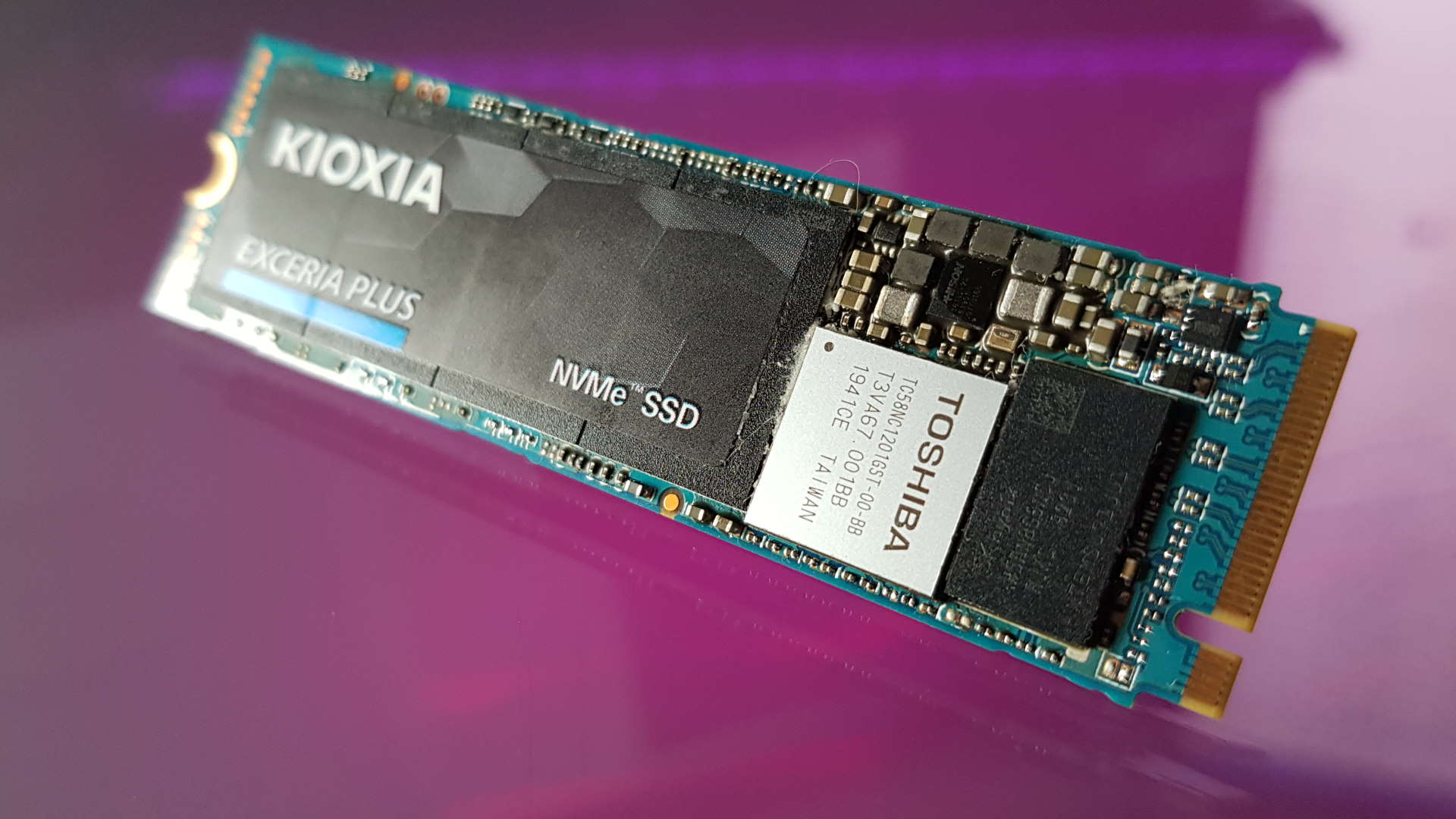
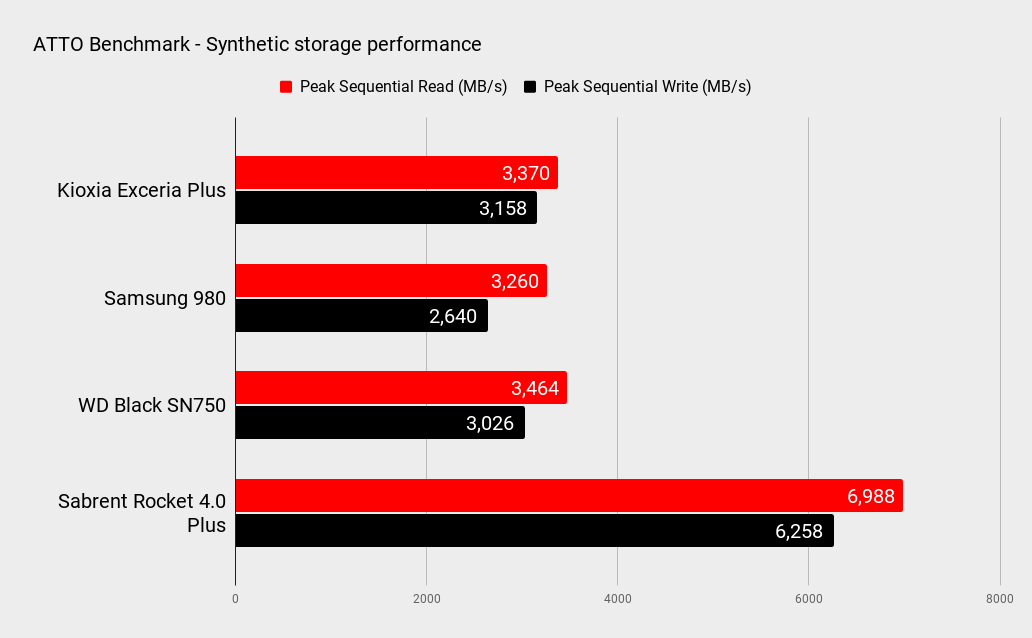
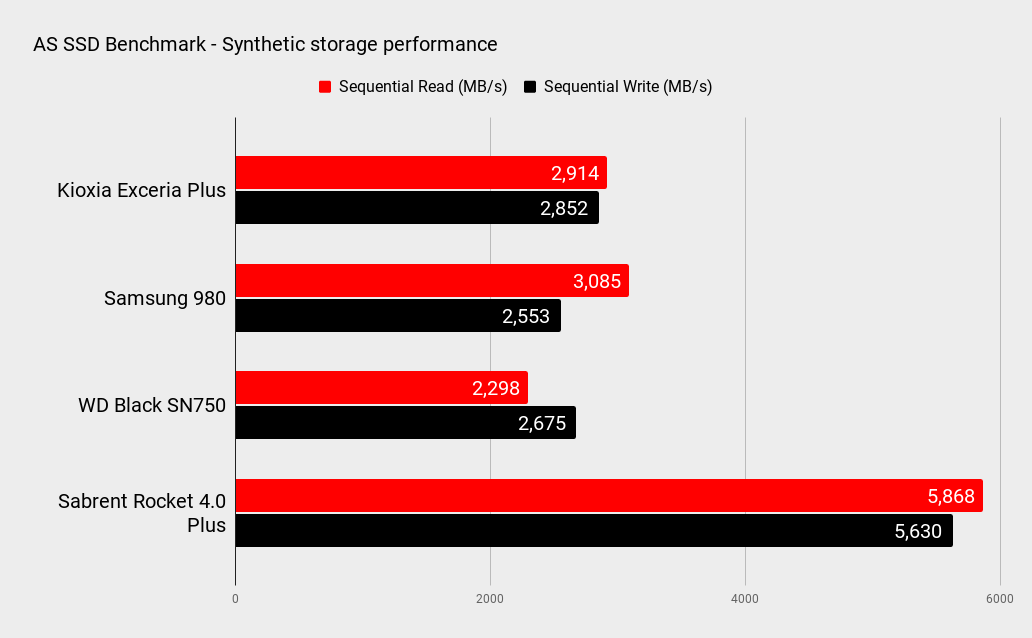
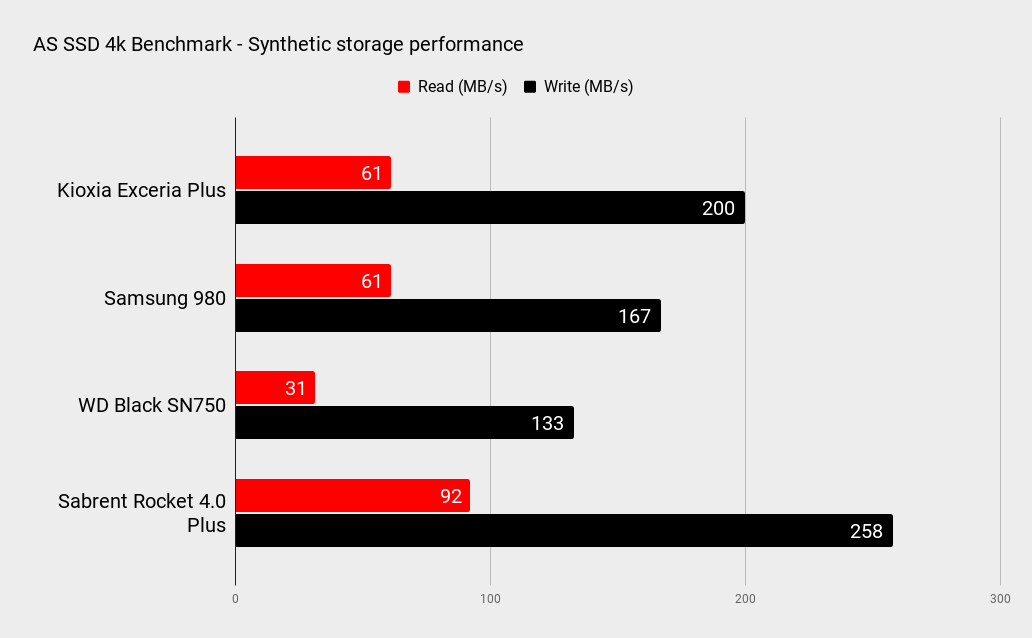
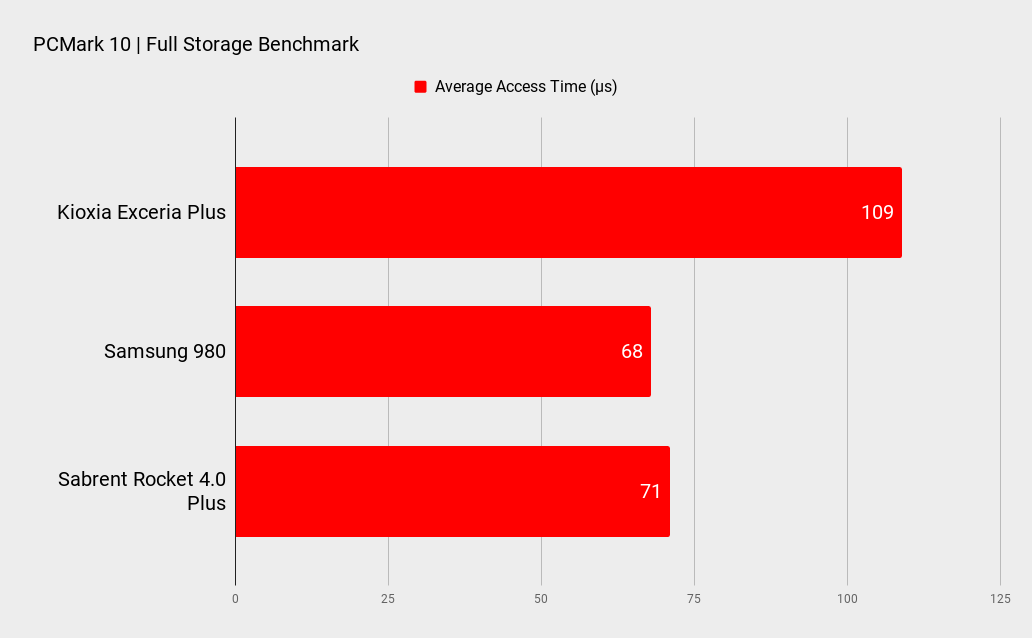
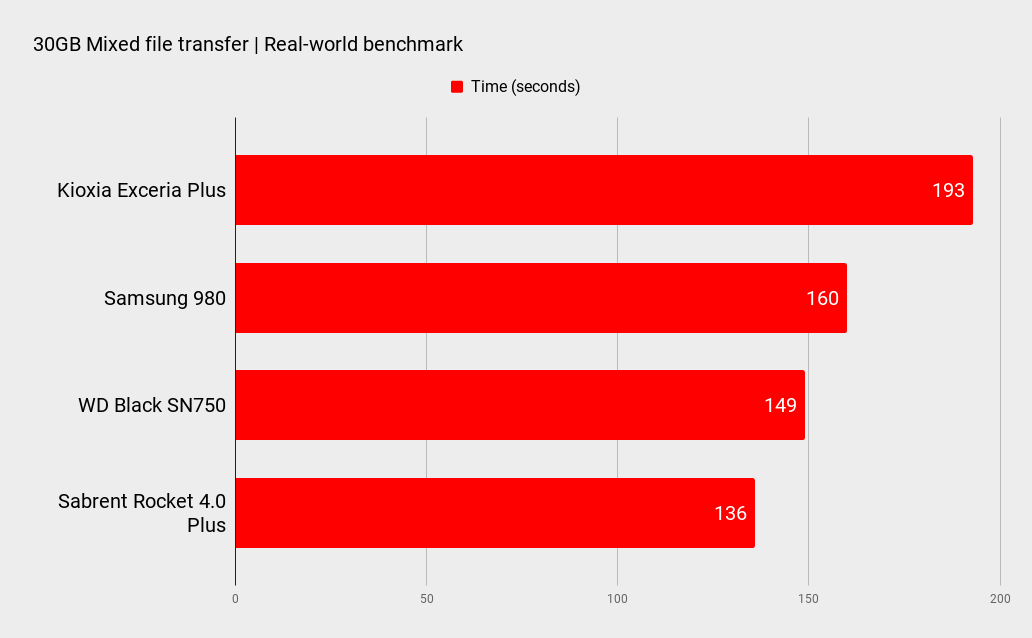
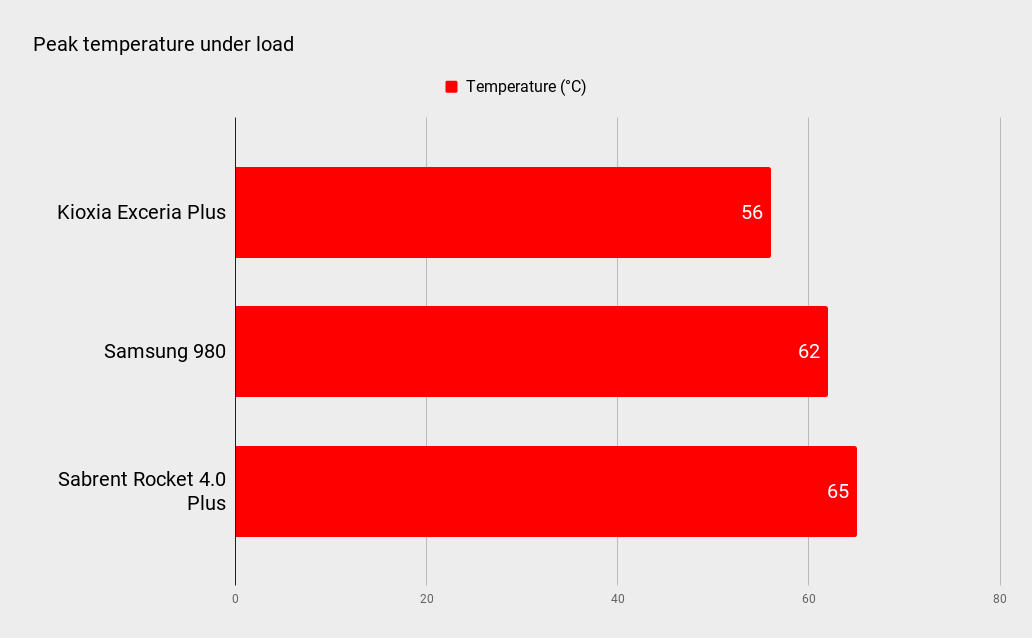
Mentioning the Kioxia in the same breath as the latest Samsung drive might seem a bit ambitious, but the BiCS5 3D NAND powering the Exceria Plus is a match for Samsung's own V-NAND, with both effectively being TLC drives. Samsung calls it 3-bit MLC, but it's the same deal. It's also essentially the same memory Western Digital has used in the WD Black SN850 drive we loved so well.
In terms of performance the Kioxia Exceria Plus does deliver close to the levels the latest Samsung drive offers, but is surprisingly well off the real world speeds of it or the older Western Digital SN750. It does remain cool under pressure however, with the max temps only spiking to 56°C at its toastiest.
We've dropped one of our favourite PCIe 4.0 SSDs into the benchmarks, the Sabrent Rocket 4 Plus, to highlight the performance delta that exists between the two interfaces. The differences look greater on paper than they are in real life, but straight file transfer speeds are obviously quicker, and the AS SSD 4k numbers highlight that little extra slickness top PCIe 4.0 drives can deliver as an OS drive.
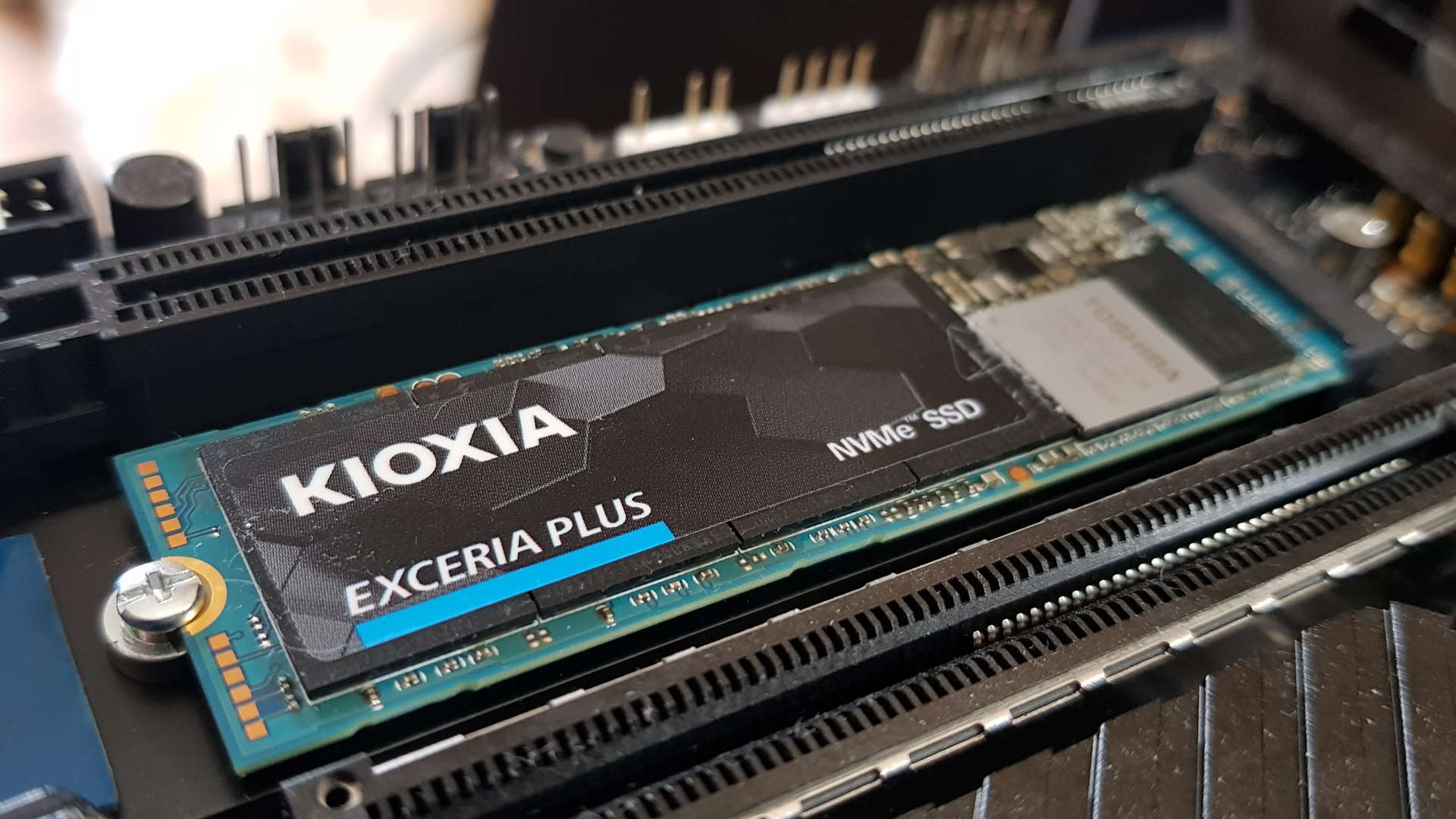
So, with the Kioxia sitting essentially level with the cream of PCIe 3.0 SSDs, and inevitably below pricier PCIe 4.0 drives, it comes down to that point about value. And, at least in the UK, the Kioxia Exceria Plus definitely has that over its nearest Samsung rival. The 2TB version of the Samsung 980 is some £370, while the 2TB Kioxia Exceria Plus is just £283—almost £100 cheaper.
Sadly the pricing is a little tougher in the US, where the Kioxia drive is currently far harder to find. At least for a sensible price anyways. But it should be far cheaper than the $399 of the Samsung, and comes at a similar level of performance, though with a lower endurance rating of 800 TBW vs. 1200 TBW. For my money that just about gives the Kioxia drive the edge when it comes to grabbing a high-capacity, high-performance PCIe 3.0 SSD for your rig.
The Kioxia Exceria Plus has been a mainstay of the PC Gamer test rig for a while, and has taken its unfair share of punishment because of it. And it's kept on trucking without complaint. As a speedy, affordable drive in day-to-day use, it's a solid recommendation from me.
We've reached a point where the best PCIe 3.0 SSDs are performing around the same level, so now it's all come down to their individual value propositions. The Kioxia drives have put value central to their make-up, and it shows.

Dave has been gaming since the days of Zaxxon and Lady Bug on the Colecovision, and code books for the Commodore Vic 20 (Death Race 2000!). He built his first gaming PC at the tender age of 16, and finally finished bug-fixing the Cyrix-based system around a year later. When he dropped it out of the window. He first started writing for Official PlayStation Magazine and Xbox World many decades ago, then moved onto PC Format full-time, then PC Gamer, TechRadar, and T3 among others. Now he's back, writing about the nightmarish graphics card market, CPUs with more cores than sense, gaming laptops hotter than the sun, and SSDs more capacious than a Cybertruck.
